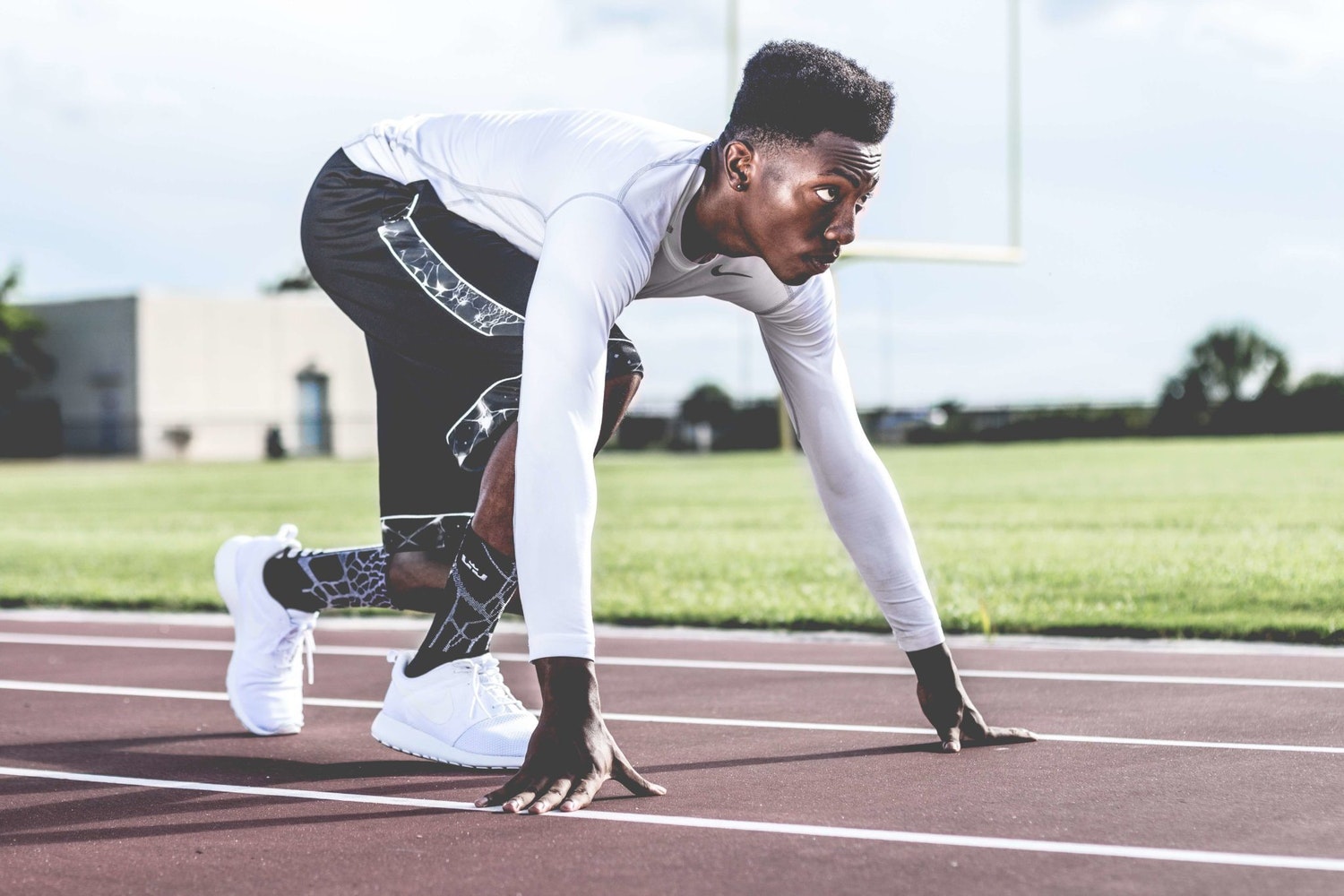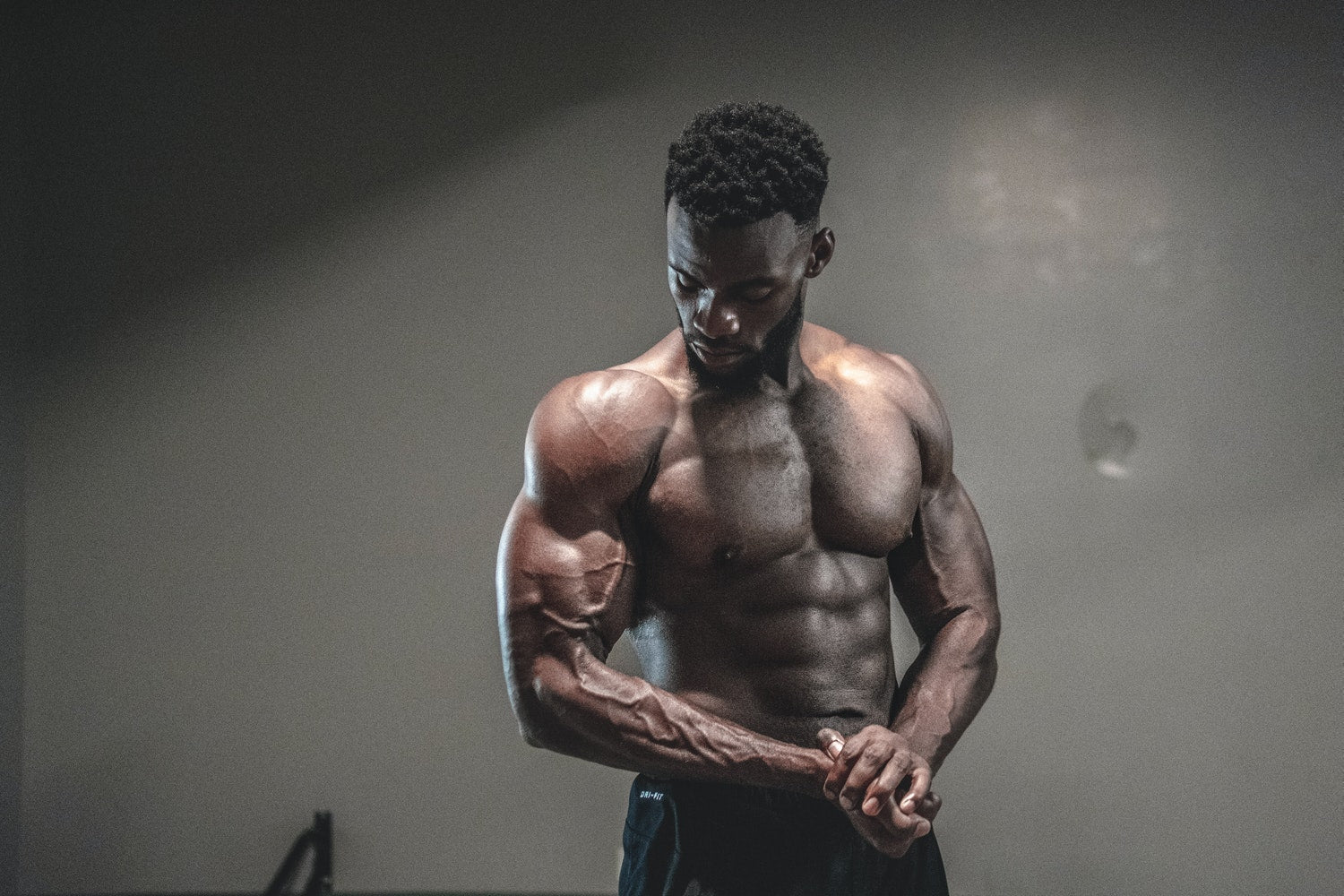Sweating is a normal symptom of exercise. Some people sweat more than others, and there are a variety of factors that determine how much you sweat:
- How hard you work out
- Weather conditions
- Genetics
- Your fitness level
- Health conditions
- Where you exercise
If you’re worried about how much you sweat, or are just curious about why you sweat at all, check out this guide on sweating during exercise.
Why Do I Sweat?
In simple terms, sweating is a natural process that keeps the body cool.
Sweat is produced by glands in your skin. Sweat glands are all over your body but are more concentrated in your forehead, armpits, palms, and soles of your feet. The sweat that your glands produce mostly comprises water, and as the water in the sweat evaporates, the skin’s surface cools.
Pretty cool, right?
Benefits of Sweating
In addition to keeping your body cool during exercise or in hot weather, the sweating has several other benefits:
- Filters toxins from the body like arsenic, lead mercury, and cadmium.
- Anti-aging effects
- Kills harmful bacteria on the skin’s surface
While it may seem bothersome, sweat is a key function of the body and should not be taken for granted. Without sweat, our body temperatures and skin health would suffer.
Have
Types of Sweat
There are two types of sweat:
- Eccrine sweat glands regulate your body temperature, also known as thermoregulation. These glands open directly onto the surface of your skin and produce a lightweight, odorless sweat.
- Apocrine sweat glands open into hair follicles, such as the armpits, scalp, and groin region. They produce more concentrated sweat secretions, which is the type of sweat most associated with body odor.
Why Do I Sweat So Much?
The two primary factors that determine sweat quantity are usually the conditions of your environment and the intensity of your workout. You may sweat a lot if you engage in a high-intensity workout, such as running or rowing with the Ski-Row Air or Ski-Row Air + PWR machines.
If you are working out in a hot or humid environment, your body will produce even more sweat to keep itself cool. Your clothing may also influence your sweat. Heavy or non-breathable fabrics can raise your body temperature.
Polyester, bamboo, and merino wool are lightweight fabrics that are breathable, moisture-wicking, and temperature regulating. Consider adding these fabrics to your fitness wardrobe to wick the sweat away.
Why Do I Sweat So Little?
If you barely sweat during workouts, you are most likely not working hard enough to produce sweat. Sweat glands produce sweat when your body temperature rises. In order to raise your body temperature, your heart rate needs to be high. Advanced athletes may need to work harder to produce sweat than average or entry-level gym-goers.
A lack of sweat may also be indicative of dehydration. If the body is not properly hydrated, then sweat production will not be at its most efficient. Follow this guide to hydrating before, during, and after workouts:
- Drink 17 to 20 ounces of water two to three hours before you start exercising.
- Drink eight ounces of water 20 to 30 minutes before you start exercising or during your warm-up.
- Drink 7 to 10 ounces of water every 10 to 20 minutes during exercise.
- Drink eight ounces of water no more than 30 minutes after you exercise.
In addition to water, sweat may also cause you to lose such minerals as sodium, sugar, and magnesium. It may be beneficial to consume electrolyte-dense fluids such as sports drinks, coconut water, or electrolyte supplements following your workout.
Hyperhidrosis
If you believe you are sweating an abnormal amount, you may have hyperhidrosis. This is a condition that causes excessive sweating in the armpits, hands, and feet. It occurs in three percent of the population and six percent of the Asian population.
While hyperhidrosis is not medically dangerous, it can be debilitating to your everyday life. The cause is unknown, but obesity and increased thyroid function may be the culprit in most patients.
Surgical and non-surgical treatments are available for those who suffer from hyperhidrosis. Consult your doctor if you believe you suffer from this condition. Treatments for hyperhidrosis include:
- Medical grade antiperspirant with 10-25 percent aluminum salts
- Topical and oral anticholinergic medications
- Botox injections
- Non-invasive microwave treatments
- Surgery to the nerves that control sweat glands, in severe cases
How To Prevent Excessive Sweating?
Sweating is a normal and healthy prevention of overheating. Excessive sweating only occurs as a result of medical conditions, such as hyperhidrosis.
In addition to medical treatments for hyperhidrosis, over-the-counter antiperspirants can prevent sweating. If you do not have hyperhidrosis, you may want to try one of these alternative options to prevent overheating and make sweating during workouts more comfortable:
- Loose-fitting clothing regulates body temperature and wicks sweat, such as polyester, bamboo, or merino wool.
- Body and foot powders that absorb sweat, such as baby powder.
- Exercising indoors or in cooler environments.
- Using deodorant to curb odors associated with sweat.
Putting It All Together
While sweat can be annoying, embarrassing, and sometimes smelly, it is a natural and healthy body function. Without sweat, we would overheat during workouts and in hot weather.
Measures can be taken to prevent larger amounts of sweat, such as wearing breathable fabrics and exercising in cooler environments. Deodorant, body powders, and moisture-wicking clothing may also make sweating more comfortable.
It is important to hydrate after a sweat-inducing workout, as sweat expels water and essential minerals from your body. If you believe you are sweating excessively, consult your doctor as you may be diagnosed with hyperhidrosis.
Don’t take sweat for granted. Working out wouldn’t be the same without it!
Sources:





Leave a comment
All comments are moderated before being published.
This site is protected by hCaptcha and the hCaptcha Privacy Policy and Terms of Service apply.